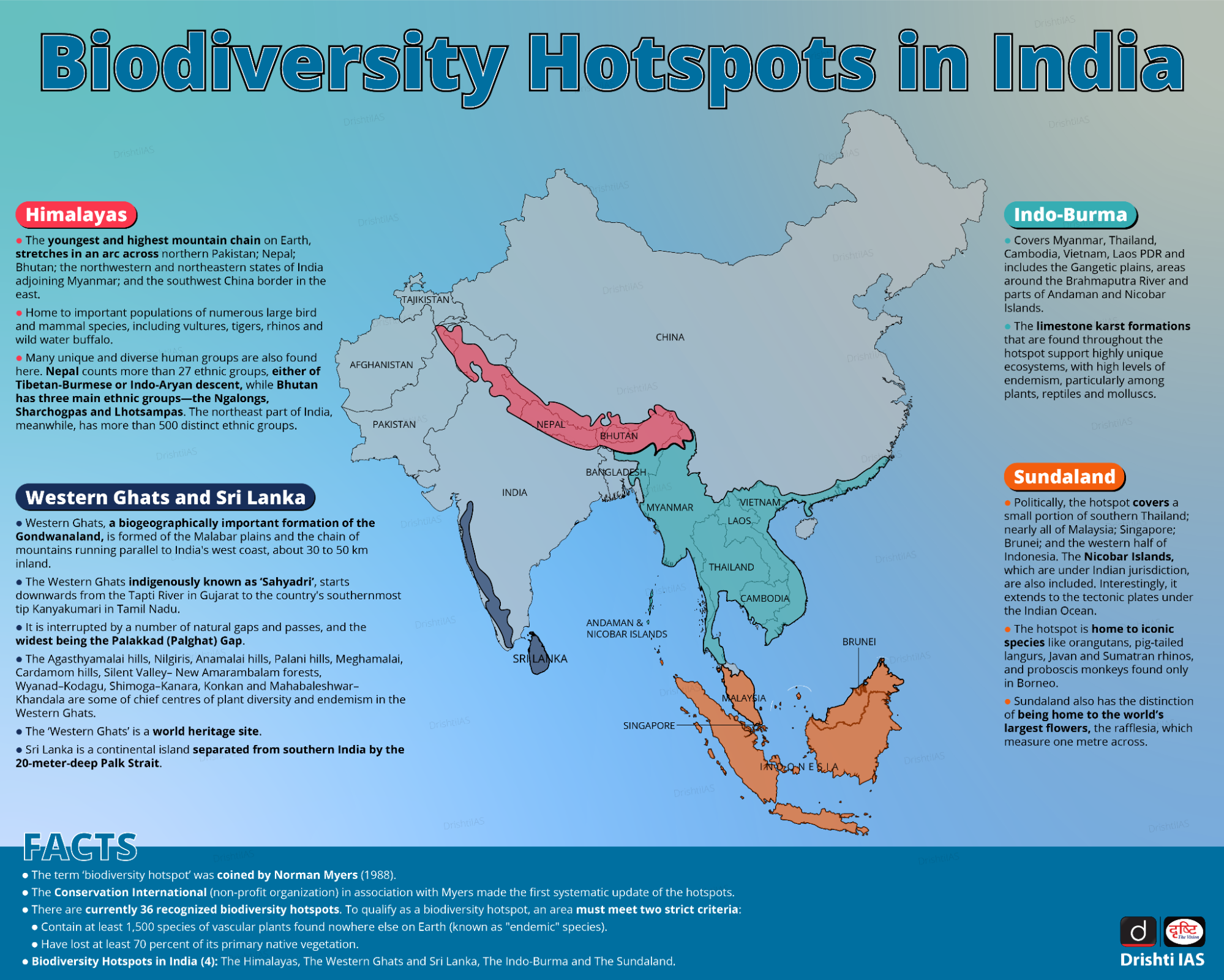Rapid Fire
Black Aspergillus in Western Ghats
- 12 Sep 2025
- 2 min read
Scientists have discovered two new species of black aspergillus (Aspergillus dhakephalkarii and Aspergillus patriciawiltshireae), from the Western Ghats, marking India’s first study in this group using advanced polyphasic taxonomy.
- The Western Ghats is a UNESCO World Heritage site and one of the eight "hottest hotspots" of biodiversity.
Black Aspergillus
- It comprises a diverse group of filamentous fungi that are ubiquitously distributed across various ecological niches and are of considerable medical, industrial, and ecological significance.
- Also known as ‘workhorses of industrial application’ especially in citric acid production, food mycology, fermentation technology, and agriculture.
World’s 8 ‘Hottest Biodiversity Hotspots
- There are 8 recognized “hottest hotspots” due to their exceptional species richness and endemism.
- Madagascar – 90% of wildlife found nowhere else on Earth; home to lemurs, chameleons, baobab trees.
- Philippines – Over 52,000 species; rich rainforests, coral reefs, and mangroves; includes Philippine eagle, tarsier.
- Sundaland (SE Asia) – Oldest tropical rainforests; orangutan, Sumatran tiger, pygmy elephant.
- Brazil’s Atlantic Forests – Only ~12% remains; golden lion tamarin, sloth, diverse plants.
- Caribbean Islands – 7,000+ islands; tropical forests, reefs, mangroves; unique birds, reptiles, amphibians.
- Indo-Burma Region – NE India to Vietnam; saola, highly endangered.
- Western Ghats & Sri Lanka – Endemics like lion-tailed macaque, Nilgiri tahr, Sri Lankan leopard.
- Eastern Arc & Coastal Forests (Tanzania & Kenya) – Ancient forests, endemic owls, colobus monkeys, unique plants.







